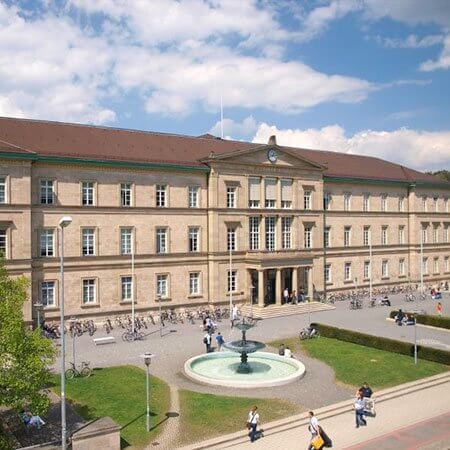Testicular abscess is a purulent cavity in the corresponding organ. In most cases, the pathology develops as a complication of acute epididymitis, which is an inflammation of the epididymis. Less commonly, the infection develops due to injury, surgery, or enters the testicle through the blood, with purulent inflammation of other organs. The treatment of the diseases involves the use of percutaneous minimally invasive procedures and surgical interventions. Doctors in Germany prefer sparing interventions that preserve as much of the testicular parenchyma as possible. High-quality treatment in a good hospital will allow you not only to cure a dangerous disease, but also to maintain reproductive function and normal levels of male sex hormones.
Content
- Diagnostics
- Conservative treatment
- Percutaneous drainage
- Surgical interventions
- Why is it worth undergoing treatment in Germany
- Treatment in Germany with Booking Health at an affordable price
Diagnostics
The diagnostics of testicular abscess is complicated by the fact that the pathology is rare and has the same clinical manifestations as epididymitis and orchiepididymitis, against the background of which a purulent cavity is formed. These manifestations include pain and swelling in the scrotum due to an increase in body temperature. Therefore, the doctor is not always able to suspect the disease in time. The specialist usually focuses not on symptoms, but on dynamics. If within 5-7 days of antibiotic therapy the patient's condition does not improve, an ultrasound scan is required to detect a possible testicular abscess.
Ultrasound scanning is the most common instrumental diagnostic method. It helps to detect a testicular formation, but it is impossible to reliably distinguish it from a tumor. A clinical picture helps to establish the diagnosis of an acute abscess: the disease begins acutely, it is accompanied by fever, severe pain, while acute intoxication and the sudden appearance of severe pain are not typical for testicular cancer.
But a chronic testicular abscess with a mild fever may cause doubts about the diagnosis. In this case, the correct diagnosis can be made with the use of the following examinations:
- Doppler ultrasound – with the determination of blood flow parameters.
- Contrast-enhanced ultrasound.
- Conventional B-mode ultrasound in dynamics: after 2-3 days, the configuration of the abscess changes, while the tumor remains stable during this time.
MRI is the most accurate method for diagnosing scrotal diseases. It allows doctors to reliably distinguish the abscess from cancer in case of a doubtful diagnosis. MRI is usually performed if the clinical picture does not match the changes found on the ultrasound scan.
Other methods of medical imaging are used much less frequently. These include:
- Computed tomography.
- Radionuclide methods.
Both diagnostic options carry radiation exposure that is harmful to the health of the reproductive system. Therefore, they are resorted to only in extreme cases, if MRI is contraindicated or technically unavailable, and it is necessary to accurately distinguish the abscess from cancer before proceeding to treatment. The CT scan is performed with contrast enhancement. The difference between the abscess and the tumor is the absence of contrast accumulation. The principle of radionuclide diagnostics is the same: the radiopharmaceutical agent administered into the body is intensively accumulated by the tumor, but does not penetrate into the purulent focus, since there are no viable tissues in it.
As for laboratory tests, the most important ones are the following:
- Complete blood count – it helps to detect the signs of inflammation.
- Blood culture – for suspected sepsis, which complicates the course of testicular abscess in 5% of patients.
- Punctate (pus removed from the abscess) culture – for determining the causative agent of the infection and assessing the sensitivity to antibiotics.
- PCR and blood tests for genital infections – for finding out the cause of the abscess and the epididymitis that preceded it.
Conservative treatment
Since the development of the testicular abscess is associated with a bacterial process, all patients receive antibiotic therapy. Nonetheless, it does not replace, but complements invasive or surgical treatment. In any case, the abscess must be opened and drained.
The exception is cases of delayed patient attendance. Sometimes the abscess does not break through, but becomes chronic. Its capsule thickens, the abscess is delimited from the surrounding tissues. If its size does not exceed one third of the testicle volume, then conservative management of the patient is possible. He receives antibiotics to suppress the infection. The bacteria in the testicle die, and scar tissue appears at the site of the abscess.
However, most patients require removal of chronic testicular abscess. Moreover, minimally invasive percutaneous puncture procedures are not suitable for its treatment. Such abscesses are removed during the surgical intervention, through an incision in the scrotum.
Percutaneous drainage
Acute abscess has a thin capsule. It can be drained without surgery, but with the use of a needle. This is a sparing and minimally traumatic treatment option, but it is suitable only for patients with a small abscess with clear boundaries, without complications.
The doctor inserts a hollow needle into the abscess, inside which there is a mandrin (core wire). This is an ultrasound-guided procedure. The core wire is then removed, and a guidewire is inserted through the needle into the abscess. After bougienage (dilation) of the channel, a drainage tube is placed along the guidewire, through which pus flows down. The tube remains permanently in the wound. The patient spends several days in the hospital, receives antibiotics, and after the complete elimination of the inflammatory process, the drain tube is removed and the wound is sutured.
Surgical interventions
More often, testicular abscess has to be treated with the help of surgery performed through a large incision. With this approach, doctors can successfully cope with abscesses of any size, with complicated and chronic forms of pathology.
There are two treatment options:
- Organ-preserving surgery – abscess incision and drainage.
- Orchiectomy – removal of the testicle together with the abscess.
The choice of treatment option is determined primarily by the severity of the pathological process and the size of the abscess. If it affects more than half of the testicular parenchyma, then the organ is usually removed. Orchiectomy is performed in about 50% of patients with testicular abscess. The surgery may result in a deterioration in reproductive functions and lower levels of male sex hormones in the blood, which especially strongly affect elderly patients, aggravating the manifestations of age-related androgen deficiency.
Whenever possible, doctors in countries with advanced medicine perform organ-preserving interventions. German doctors strive to preserve the parenchyma in both young and elderly patients. This is important for young men, since many of them have reproductive plans, while testicular abscess and its overly radical treatment are one of the main causes of secretory infertility. The main problem for older men is hormone deficiency. More sparing surgery allows them to maintain normal testosterone secretion and reduce the need for replacement therapy.
Why is it worth undergoing treatment in Germany
If you have testicular abscess, you can undergo treatment in Germany. This country has a high level of medicine, and therefore you can count on the treatment to be as effective, sparing and safe as possible.
There are several reasons for you to undergo testicular abscess treatment in one of the German hospitals:
- Timely and accurate diagnostics using state-of-the-art equipment allows doctors to reliably distinguish the abscess from the tumor.
- The use of sparing procedures for percutaneous abscess drainage instead of surgery through a large scrotal incision, if possible.
- If surgical intervention is required, doctors give preference to organ-preserving operations.
- Surgeons preserve as much of the testicular parenchyma as possible in order to reduce the risk of infertility and male sex hormone deficiency.
- Modern surgical techniques: minimal incisions, vascular coagulation for blood loss reduction, neat sutures and prosthetics of the testicle in case of its removal for an acceptable aesthetic result.
- Full-fledged anesthesia, high-quality symptomatic therapy and prevention of complications in the postoperative period.
Treatment in Germany with Booking Health at an affordable price
To undergo testicular abscess treatment in one of the German hospitals, you can use the services of the Booking Health company. On our website, you can find out the cost of treatment and compare prices in different hospitals in order to book a medical care program at a favorable price. Treatment in German hospitals will be easier and faster for you, and the cost of treatment will be lower.
You are welcome to leave your request on the Booking Health website. Our specialist will contact you and provide a consultation on treatment in Germany. Booking Health will fully organize your trip to this country. We will provide the following benefits for you:
- We will select the best hospital in Germany, whose doctors specialize in testicular abscess treatment.
- We will solve the problem of the language barrier, and we will provide communication with the doctor of the German hospital.
- We will reduce the waiting time for the medical care program. You will undergo treatment on the most suitable dates.
- We will reduce the price. The cost of treatment in Germany will be reduced due to the lack of overpricing and additional coefficients for foreign patients.
- We will take care of all organizational issues: we will prepare documents, meet you in Germany and take you to the hospital, book a hotel, and provide interpreting services.
- We will prepare a program and translate medical documents. You do not have to repeat the previously performed diagnostic procedures.
- We will help you keep in touch with doctors after the completion of treatment in Germany.
- We will organize additional diagnostic examinations and treatment in a German hospital.
- We will buy medicines in Germany and forward them to your native country.
Your health will be in the safe hands of the world's leading doctors. The Booking Health specialists will help reduce the cost of treatment, organize your trip to a German hospital, and you can fully focus on restoring your health.
Authors:
The article was edited by medical experts, board-certified doctors Dr. Vadim Zhiliuk and Dr. Sergey Pashchenko. For the treatment of the conditions referred to in the article, you must consult a doctor; the information in the article is not intended for self-medication!
Sources:
National Center for Biotechnology
Medical News Today
Medscape




















